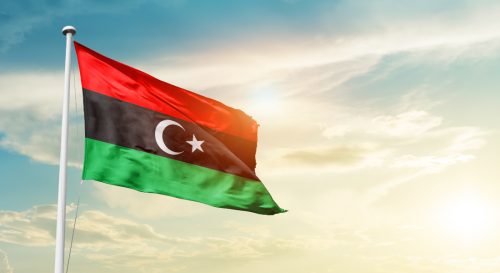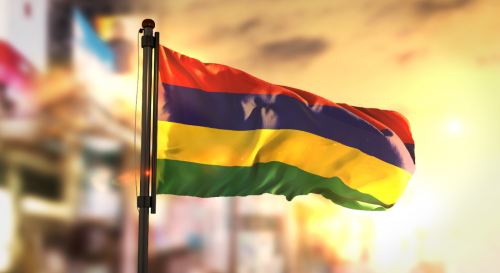
Is Mauritius the right choice for holding intellectual property rights?
In a globalized world, driven by the information technologies revolution and the service economy, the tangible assets are less and less valuable, while intangible assets, increasingly valuable, are emerging as the key to success, leading the companies to seek how to best use their intangible assets.
Companies legally protect their intangible assets by acquiring and maintaining IP (Intellectual Property) rights, which turns them into valuable exclusive assets. Robust IP rights and protection are vital for a company to have a strong market position, competitive advantage, higher profit or returns on investments and additional income (from licensing for instance).
It is important to note that brands such as “Apple”, which is ranked 1st in Forbes World’s Most Valuable Brands - is valued at $241.2 billion and its revenue is estimated to be $260.2 billion. Another example would be “Amazon”, 4th in the ranking, which is valued at $135.4 billion, and its revenue is estimated to be $260.5 billion, the double of its value. In both cases, the brand revenue is higher than the brand value.
Notably, an IP strategy is an essential business tool to protect, monitor and exploit the IP assets, including trademarks, and ensure that the companies derive maximum benefit in a safe environment.
To further secure their IP assets, companies, essentially multinationals and businesses with plans for internationalization, may create a separate company - an IP holding company - with the purpose of owning their IP rights. Within this IP holding corporate structure, the parent company’s IP assets are assigned to the subsidiary - the IP holding company - which is a non-trading entity, with no contractual or other relationship with customers. Simultaneously, licensing agreements are celebrated between both companies, wherein the parent company, which is an operating company, agrees to pay royalties to the IP holding company, for the right to use its IP. This structure may be composed by many other operating companies or subsidiaries which will also sign licensing agreements with the IP holding company and pay royalties for the right to use its IP.
There are many advantages in separating the ownership of IP rights from the parent company and the other operating companies and bring them under the aegis of an IP holding company. Some of the advantages are:
• Allowing a management centralization of all IP assets of the Group;
• Protecting the IP from claims against the operating companies. Simultaneously, it also prevents the parent company and other operating companies of the group from getting involved in lawsuits concerning their IP;
• Enabling the revenue to be generated in low-tax jurisdictions or jurisdictions that do not tax income received from licensing royalties;
• Enabling the IP to be effectively separated from other assets, thus becoming available to be used as security or to be sold;
• Protecting the IP from hostile takeovers of the parent company;
• Attracting investment.
Many multinational corporations that use the IP holding corporate structure, establish their IP holding companies in tax-friendly countries so that the revenues paid by the operating companies to the IP holders (which can be very high in some countries) are taxed at a lower rate.
In this context, is Mauritius a possible choice to establish an Intellectual Property holding company?
Mauritius ranks 1st among the 26 Sub-Saharan African economies and 9th among the 37 upper middle-income group economies featured in the Global Innovation Index (GII). Mauritius has multiple bilateral trade agreements with African countries, which shall permit the foreign companies to have preferential access to key African markets. It is politically and economically stable and it has a very friendly tax regime given that there are no foreign exchange controls and foreign companies enjoy free repatriation of profits. Mauritius also eliminated double taxation with several countries. As a result, it attracted more than 32,000 offshore companies, emerging 1st for the domiciliation of international companies investing in the African continent.
Accordingly, there are strong indications that Mauritius is a great choice to establish an IP holding company, essentially when companies are planning to invest in Africa.
However, besides the political, financial and tax considerations, it is also primordial to consider the level of IP assets protection available in a jurisdiction before transferring any IP to a subsidiary domiciliated there.
In 2019, Mauritius enacted a new IP legislation - the Industrial Property Act 2019 - in order to promote innovation, strengthen the protection of IP rights and, also, to create better conditions to attract high-quality investment. The new legislation shall come into force on a date to be fixed by proclamation.
Among many important measures implemented by the new Act, mention shall be made to the extension of legal protection to utility models, new plant varieties, geographical indications and layout-design of integrated circuits. The fact that the new Act makes provision for Mauritius to adhere to WIPO administered Treaties, namely the Madrid Protocol, as far as trademarks rights are concerned, shall also be highlighted.
There is no doubt, the new law will draw the attention and Mauritius will convince many corporations to create IP holding companies in the country. Thus, we are longing that the new law, adopted already two years ago, will finally enter into force.
This article was originally published in The Trademark Lawyer (Issue 4 - 2021)
Lista de Territórios
Não existem resultados para a sua pesquisa.
- África
- África do Sul
- Angola
- Argélia
- Benin
- Botsuana
- Burkina Faso
- Burundi
- Cabo Verde
- Camarões
- Chade
- Comores
- Costa do Marfim
- Djibuti
- Egito
- Eritreia
- Eswatini (Suazilândia)
- Etiópia
- Gabão
- Gâmbia
- Gana
- Guiné
- Guiné-Bissau
- Guiné-Equatorial
- Lesoto
- Libéria
- Libia
- Madagáscar
- Maiote
- Malaui
- Máli
- Marrocos
- Maurícias
- Mauritânia
- Moçambique
- Namíbia
- Níger
- Nigéria
- Quénia
- República Centro-Africana
- República Democrática do Congo
- República do Congo
- Reunião
- Ruanda
- Saara Ocidental
- São Tomé e Principe
- Seicheles
- Senegal
- Serra Leoa
- Somália
- Sudão
- Sudão do Sul
- Tanzânia
- Togo
- Tunísia
- Uganda
- Zâmbia
- Zanzibar
- Zimbábue
- África (OAPI)
- África (ARIPO)
- Mais Territórios
- Macau
- Maldivas
- Portugal
- Timor Leste
- Marca da União Europeia (EUIPO)
- Marca Internacional (Sistema de Madrid)
- Patente Europeia (IEP)
- Tratado de Cooperação em matéria de Patentes (PCT)




